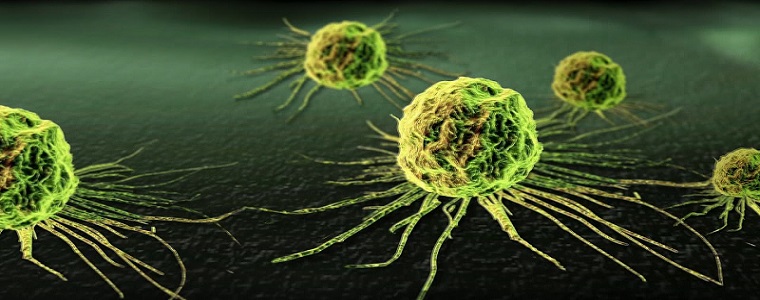SODIUM PYRUVATE
CELLULAR, BIOCHEMICAL AND PHARMACOLOGY BACKGROUND

Sodium Pyruvate is biochemically classified as an α-ketoacid and is part of the body’s natural endogenous antioxidant defense system. It is secreted by cells, readily enters cells, and can directly react to detoxify detrimental compounds such as H2O2 and peroxynitrites. Sodium Pyruvate has been shown to significantly reduce inflammatory agents in all parts of the human body including the lungs and the nasal cavities. The inflammatory agents being reduced include hydrogen peroxide, nitric oxide, IL-8, TNF, and other inflammatory cytokines, that are produced by oxygen radicals.
Normal plasma levels of Sodium Pyruvate are approximately 0.1 mM and normal intracellular levels can reach 0.5 mM. Sodium pyruvate has been shown to have protective antioxidant activity both in vitro and in vivo. There are four major chemical pathways by which sodium pyruvate can either directly or indirectly generate or augment an antioxidant or anti-inflammatory effect:
- Hydrogen peroxide. H2O2 is directly toxic to cells and also is a precursor to other reactive oxygen species. Inhibition of H2O2 would have broad antioxidant and anti-inflammatory effects. Sodium pyruvate directly interacts non-enzymatically with H2O2 to generate the non-toxic compounds CO2 and H2O.
- Peroxynitrites. Compounds referred to as peroxynitrites are produced in the reaction of superoxide anion with NO. The peroxynitrites are known to be more toxic and more active than either superoxide anion or NO alone. They are very toxic and disruptive to cell membranes via lipid peroxidation not only leading to cell death but also dysfunction of many cellular membrane functions, such as transport mechanisms. Sodium Pyruvate directly interacts in a 2nd order chemical reaction with peroxynitrites converting them into non-toxic compounds.
- NADPH2. An essential component in the reductive activity of thiol compounds like GSH is the generation of NADPH2, which aids in driving the reaction to the reduced state (i.e., GSH), thus replenishing antioxidant activity. Sodium Pyruvate has been shown to play an important role in the generation of intracellular NADPH2 and therefore may help in maintaining optimal levels of thiol compounds, such as GSH.
- Reduction of inflammatory Cytokines. Sodium Pyruvate has been shown to reduce many inflammatory cytokines like Il-6, IL-8 TNF etc. In our own studies with CF patients, EmphyCorp showed a significant reduction of these cytokines in CF patients treated with0.5mM Pyruvate.
Clinically, Sodium Pyruvate has been given to patients for a variety of disorders ranging from Friedreich’s ataxia to open heart operations and including kidney surgery, eye surgery, hyperkeratotic disorders, and treatment of mitochondrial diseases.
It has been administered via several routes including intravenous (10-20 times EmphyCorp’s inhaled therapeutic dose), topical administration for hyperkeratotic disorders (61), and in dietary supplementation. Sodium pyruvate has been shown to protect neurons, lungs, hearts, muscles, cerebral metabolism, embryos, eyes, kidneys, cellular DNA and membranes from oxygen radical damage.
The levels of Sodium Pyruvate employed in these applications are 2-32mM concentrations. In human and animal studies, Sodium Pyruvate was shown to facilitate wound healing, decrease inflammation, and decrease production of oxygen radicals. It is being sold as an OTC product and is being used in the gastrointestinal tract to heal surgical wounds. Sodium Pyruvate or the other a- keto acids are considered “Generally Regarded as Safe” (GRAS) by the FDA
In summary, Sodium Pyruvate is a safe and efficacious antagonist of both reactive oxygen and nitrogen species. It also has the potential to increase intracellular levels of thiol compounds, major sources of intracellular anti-oxidants. Sodium Pyruvate has been shown to act as an anti-inflammatory agent that can reduce the number of infiltrating neutrophils and levels of oxygen radicals at wound sites, thereby limiting the production of pro-inflammatory mediators.
SODIUM PYRUVATE:
SAFETY
EmphyCorp, Inc. has discovered and patented the use of Sodium Pyruvate as an inhaled natural antioxidant that significantly reduces inflammatory agents throughout the human body including the lungs and nasal cavities. The lung and sinus inflammatory agents that are reduced include oxygen radicals like hydrogen peroxide, and inflammatory cytokines including Interleukin 6 (IL-6).
Sodium Pyruvate increases nasal nitric oxide needed to kill infections to safely treat sinus infections and symptoms in numerous lung diseases including COVID-19, long COVID and Flu. It acts like a steroid, but is non-toxic, safe and natural.
As demonstrated in 19 Human FDA Clinicals with thousands of Patients, our Drug Patented N115 Nasal Spray with Sodium Pyruvate was shown to increase all lung functions, SaO2, while also decreasing coughing, hypoxemia and dyspnea.
Pyruvate is a natural antioxidant component of human cells that is critical to human survival. Sodium Pyruvate provides energy to all human cells.
Sodium Pyruvate has been studied for over 100 years with over 33,000 publications in peer review journals, providing ample data as to its safety and mechanism of actions. Sodium Pyruvate is used in OTC Nasal Products as an antioxidant.
As with many products that contain Sodium Pyruvate (Neosporin, Lubriderm, Vaginal Products, Viva Eye Drops, Ringers Solution, Human IV Solutions, and solutions to store red blood cells by the Red Cross and store human organs for transplant), its main function is as an antioxidant and anti-inflammatory agent.
Sodium Pyruvate is considered GRAS (Generally Regarded as safe) by the FDA and it has been administered to patients for a variety of medical disorders by oral, intravenous, or topical administration and applications including: the treatment of Friedreich’s ataxia, as a constituent in a therapeutic solution used in open heart surgery, kidney surgery, eye surgery, mitochondrial diseases, as an oral dietary supplement, and as a component in organ transplant media that is being used to preserve human lungs, hearts, and other organs for human transplants.
In summary the use of our N115 Nasal Spray with inhaled Sodium Pyruvate has been shown to be safe and efficacious in the treatment of Patients with Covid-19 infections, COVID long haulers, Flu, COPD, Asthma, Cystic Fibrosis, Pulmonary Fibrosis, Allergic Rhinitis, and Patients suffering with Hypoxemia.
